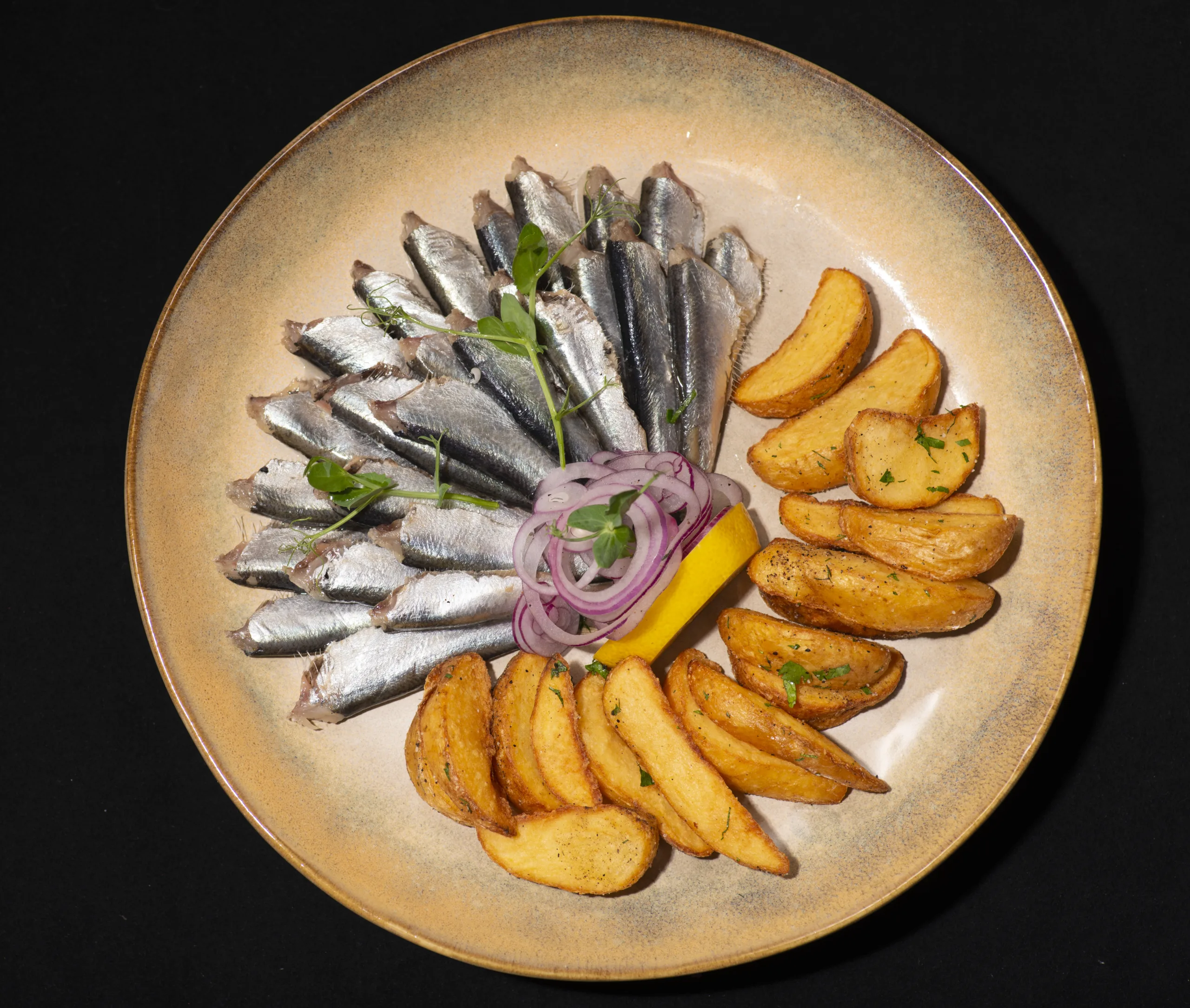Potatoes have been a staple food for centuries, but can they be enjoyed on a low FODMAP diet?
If you’re following the low FODMAP diet to manage your IBS symptoms, you may be wondering if potatoes are safe to eat. Potatoes can be part of a balanced low FODMAP diet, and this article will explain how to include them in your meals. We’ll also cover which types of potatoes are low FODMAP and what serving sizes are safe. With this knowledge, you’ll be able to incorporate potatoes into your low FODMAP meal plan with confidence.
Yes, potatoes are generally low FODMAP. They can be eaten in small servings as part of a low FODMAP diet, with the exception of potato chips and other processed potato products which should be avoided.
FODMAPs Found in Potatoes
Potatoes are a popular vegetable that is often used in many dishes. Unfortunately, they also contain certain FODMAPs which can be problematic for those with digestive sensitivities. Fructose, fructans and galactans are the primary FODMAPs found in potatoes.
Fructose is a monosaccharide sugar naturally found in many fruits, vegetables, grains and honey. It is also present in potatoes in small amounts. Fructans are polysaccharides composed of fructose molecules linked together by glycosidic bonds. They are found in wheat, onions and garlic as well as potatoes. The third type of FODMAP found in potatoes is galactans which is a polysaccharide composed of galactose molecules connected by glycosidic bonds.
People who have difficulty digesting these FODMAPs may experience uncomfortable symptoms such as bloating, abdominal pain and diarrhea after eating potatoes. Therefore, it may be beneficial for those with digestive issues to limit their consumption of potatoes or choose other low-FODMAP vegetables instead.
It should also be noted that the amount of FODMAPs present in potatoes can vary depending on how they are cooked or prepared. For example, boiling or steaming potatoes can reduce the amount of FODMAPs present compared to roasting them or eating them raw. So it may be beneficial to cook potatoes differently if you need to reduce your intake of certain FODMAPs.
FODMAP and IBS Symptoms
FODMAP stands for Fermentable Oligosaccharides, Disaccharides, Monosaccharides, and Polyols. It is a group of short-chain carbohydrates found in a wide variety of foods. These carbohydrates can be difficult to digest and can cause symptoms of Irritable Bowel Syndrome (IBS) such as bloating, abdominal pain, flatulence, and diarrhea. People with IBS often have difficulty digesting FODMAPs due to an intolerance to them or a lack of enzymes necessary for digestion.
FODMAPs are found in many everyday foods such as dairy products, wheat, fruits and vegetables, beans, lentils, and certain sweeteners. Foods high in FODMAPs include onions, garlic, apples, pears, peaches and watermelons. They are also found in processed foods such as ice cream, candy bars and soft drinks.
Click here to preview your posts with PRO themes ››
A low-FODMAP diet is an effective way to reduce symptoms of IBS by avoiding the consumption of foods that contain high amounts of these carbohydrates. When following this diet it is important to read labels carefully as some products may contain hidden sources of FODMAPs. Eating a variety of low-FODMAP foods can help maintain a balanced diet while still avoiding the symptoms associated with IBS.
Types of Potatoes and Their FODMAP Content
Potatoes are a starchy vegetable, and an important part of many diets. They are often used as a side dish, in main dishes, or as a snack. Potatoes come in many varieties, each with its own unique flavor and texture. However, when it comes to the FODMAP content of potatoes, not all types are created equal. Here is a breakdown of some common potato varieties and their FODMAP content.
White Potatoes: White potatoes have the highest FODMAP content of all potato varieties. They contain moderate amounts of fructose, which can trigger symptoms for those with IBS. Therefore, it is best to limit white potatoes if you have IBS or are following a low-FODMAP diet.
Sweet Potatoes: Sweet potatoes have a lower FODMAP content than white potatoes, and can be enjoyed in moderation on a low-FODMAP diet. However, they still contain some fructose, so it is best to limit your portions if you have IBS or other digestive issues.
Fingerling Potatoes: Fingerling potatoes are small potatoes that come in various colors including yellow, purple and red-skinned varieties. They contain lower amounts of fructose than white or sweet potatoes, making them suitable for those following a low-FODMAP diet.
Yukon Gold Potatoes: Yukon Gold potatoes are yellow-fleshed potatoes that are slightly sweet in flavor. They contain moderate amounts of fructose and should be consumed in moderation by those with IBS or other digestive issues.
Red Skinned Potatoes: Red skinned potatoes have the lowest FODMAP content out of all potato varieties. They can be enjoyed freely by those on a low-FODMAP diet without triggering symptoms of IBS or other digestive issues.
Is Potato Starch Low FODMAP?
Potato starch is a popular ingredient among those following the low FODMAP diet. As with all foods, it is important to check the label to ensure that it meets your dietary needs. Generally speaking, potato starch is low FODMAP in small amounts, however, larger servings may trigger symptoms for some people. It should also be noted that potato starch does not contain gluten and can be used as a substitute for wheat flour in baking recipes.
Potato starch is made from potatoes that have been cooked and dried before being ground into a fine powder. The starches are separated from the other components of the potatoes and then milled into a powder which can be used as an ingredient in baking and cooking recipes. Potato starch contains very little fiber or protein and is mostly composed of carbohydrates.
Click here to preview your posts with PRO themes ››
When considering whether or not potato starch is low FODMAP, it is important to keep in mind that the amount consumed can affect how the body reacts to it. A small serving of potato starch (about 10 grams) is generally considered low FODMAP, however consuming larger amounts may cause gastrointestinal symptoms such as bloating and gas in some individuals. It is best to start by introducing small amounts of potato starch into your diet and increase gradually over time to assess your tolerance level.
In conclusion, potato starch is generally considered low FODMAP in small amounts but can trigger symptoms if consumed in large quantities. If you are following a low FODMAP diet, it’s best to start off with small servings of potato starch and increase gradually over time to determine your tolerance level.

Can You Eat Baked Potatoes on a Low FODMAP Diet?
Yes, you can eat baked potatoes on a low FODMAP diet. Baked potatoes are an excellent source of carbohydrates, fiber, and vitamins and minerals. They contain no added ingredients that are high in FODMAPs, making them a suitable choice for those who are following a low FODMAP diet.
When preparing baked potatoes, you should avoid adding any high-FODMAP ingredients such as garlic, onions, and certain cheeses. Additionally, avoid adding butter or cream to your baked potato as these may contain lactose which is a type of FODMAP.
Baked potatoes are a great way to get your recommended daily servings of vegetables while still staying within the confines of the low FODMAP diet. They can be served with other low FODMAP foods such as lean proteins, leafy greens, and non-starchy vegetables.
If you’re looking for some creative ways to enjoy your baked potato on the low FODMAP diet, try topping it with salsa or Greek yogurt for an extra boost of flavor. You can also add some herbs and spices such as oregano or rosemary to give it an extra kick.
Overall, baked potatoes can be enjoyed on a low FODMAP diet as long as they are prepared without any high-FODMAP ingredients. Enjoying one with other low-FODMAP foods is a great way to get all the nutrition you need while staying within the parameters of this beneficial diet plan.
Substitutes for Potatoes on a Low FODMAP Diet
For those following a low FODMAP diet, potatoes can be difficult to include. Fortunately, there are many other root vegetables and grains that can be used as substitutes for potatoes in dishes.
Carrots and parsnips are both low FODMAP root vegetables that can be boiled and mashed or diced and roasted to create a side dish similar to mashed potatoes. Sweet potatoes are also low FODMAP, so they are an excellent alternative for those following the diet.
Grains such as quinoa and rice can also be used as potato substitutes in dishes like salads, casseroles, and soups. Rice is especially versatile, as it can be cooked in many different ways to add texture and flavor to meals. Quinoa is also a great option for dishes that require more substance than rice, such as casseroles.
Click here to preview your posts with PRO themes ››
Other starches, like cornstarch or tapioca flour, are good alternatives when thickening sauces or gravies that would normally use potato starch. Cornstarch is a great choice because it is gluten-free and will not alter the flavor of the dish too much. Tapioca flour can also be used in sauces or gravies if a more neutral taste is desired.
Finally, there are several other vegetables that can be used as substitutes for potatoes in some dishes. Butternut squash or pumpkin can be roasted or boiled until soft and mashed just like potatoes for a delicious side dish. Cauliflower is another great option; it can be boiled and mashed with butter or olive oil, garlic-infused oil (for those who tolerate it), salt, pepper, and herbs to create an easy alternative to mashed potatoes.
For those following a low FODMAP diet who miss the taste of potatoes in their meals, there are plenty of options available to recreate the taste without using traditional potatoes!
Tips for Enjoying Potatoes on a Low FODMAP Diet
Potatoes are a delicious and versatile side dish, but they can be tricky to enjoy on a Low FODMAP diet. Fortunately, there are some simple tips you can follow to make sure you can still enjoy potatoes while staying within the guidelines of the diet.
First, always choose small potatoes when possible. Small potatoes tend to have lower levels of FODMAPs than their larger counterparts. This makes them a great choice for those on a low-FODMAP diet.
Second, be sure to peel your potatoes before cooking them. The skin of the potato contains higher levels of FODMAPs than the flesh, so removing it before cooking will help reduce the amount of FODMAPs in your meal.
Third, boil or steam your potatoes instead of baking or frying them. Boiling and steaming are much gentler cooking methods that will help preserve the nutrients in the potato while minimizing their FODMAP content.
Finally, make sure to serve your potatoes with low-FODMAP accompaniments such as olive oil or herbs and spices. This will help keep your meal balanced and low in FODMAPs overall.
By following these simple tips, you can easily enjoy delicious potatoes on a Low FODMAP diet without sacrificing flavor or nutrition!

Conclusion
Potatoes are generally considered a low FODMAP food, with small or moderate servings of potatoes being tolerated by most individuals following a low FODMAP diet. The type of potato you eat can also affect your tolerance level – for example, white potatoes are usually better tolerated than sweet potatoes. However, it is important to remember that everyone is different and what works for one person may not work for another. It is best to experiment with different varieties of potatoes and determine which works best for you. If you have any concerns about your diet, be sure to speak to your doctor or a registered dietitian.
In conclusion, while potatoes may not be ideal for everyone following a low FODMAP diet, they are generally tolerated by most people in small or moderate servings. It is important to experiment and determine which types of potato work best for you and seek advice from your doctor if you have any concerns.

